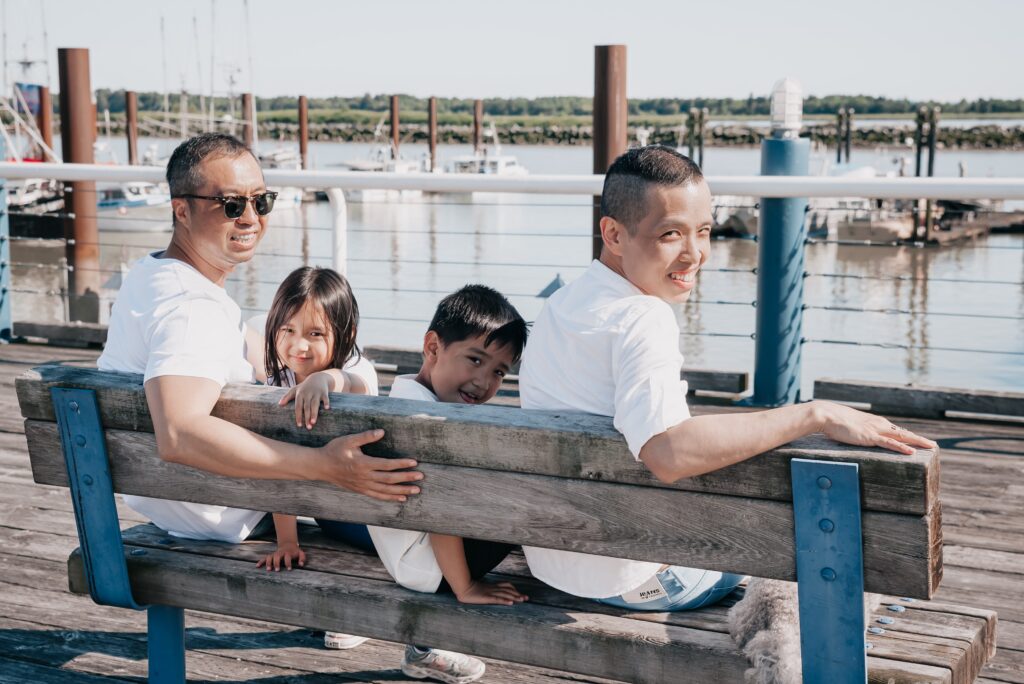The year ahead: What to expect from LGBTQ rights in 2023
What LGBTQ people need to know—and do—in 2023.
As the New Year opens out before us, LGBTQ people need to plan for self-care and activism in equal measure to combat the rising forces of GOP-led homophobic and transphobic legislation and a national anti-LGBTQ rhetoric that has already led to anti-LGBTQ violence, like the mass shooting at Club Q in Colorado. Looking ahead to how 2023 will impact LGBTQ people means taking stock of how LGBTQ people were harmed by the GOP, far-right hate groups and lack of action by some Democratic leadership in 2022.
Why resolutions go awry
Sometimes that new year looming large can feel daunting. There’s so much most of us want to do in a new year–so many changes we think we want to make. Lose weight. Exercise more. Stop smoking and/or drinking, with a dry January an increasingly popular resolution as well. These are the most common New Year’s resolutions. But by February, 60 percent of Americans will have ceased any attempts at those resolutions, so maybe we are going about this resolution thing all wrong.
Intentionality should be our first step: What are our intentions for ourselves and for our community for 2023? Statistically and in terms of general wellness profiles, including the larger picture of others helps people stay on track with resolutions.
A recent review of the health effects of volunteering and other activism found that helping others on a regular basis can reduce early mortality rates by 22 percent, compared with mortality rates for those who don’t participate in altruistic activities that help others. That’s a significant difference. Plus, doing things for others makes us feel better about ourselves.
Self-care is still your best go-to
Yet as the iconic Black lesbian writer and theorist Audre Lorde said, self-care is revolutionary. Lorde instructed against particularly women and oppressed minorities being told that self-care was selfish. Lorde said, “Caring for myself is not self-indulgence, it is self-preservation and that is an act of political warfare.”
LGBTQ people have a much higher incidence of substance abuse than their cis-het peers. Homophobia and transphobia are dangerous to our well-being and many LGBTQ people self-medicate as a response to that oppression and its many manifestations. Stopping smoking and addictive drinking and drug-taking is the sort of revolutionary act of self-care Lorde was talking about. There are groups for LGBTQ people online that can help.
If a dry January feels good, why not extend it? Dry January is a month-long break from drinking alcohol as a way to reset the relationship people have with alcohol after the holiday season–but this can also apply to drug use. In 2023, the percentage of Dry January participants is expected to grow as more sober-curious people try to reset their health goals for the New Year. Harvard Medical School has tips for success.
Hate is here to stay, so do something about it
Homophobia and transphobia are not going away, though, and well beyond issues of self-care and self-protection must be individual and community activism to mitigate against the impact of this hateful rhetoric and actions on LGBTQ people as a community and on the most vulnerable members of that community proven to be most at risk: LGBTQ youth and elders, people with HIV, gender nonconforming lesbians and trans women of color.
Statistics from 2022 indicate that the impact of anti-LGBTQ hate was exponentially higher with no signs of receding. The ACLU tabulated more than 300 anti-LGBTQ bills in state legislatures nationally. Among these were the notorious “Don’t Say Gay” law in Florida and its off-shoots and laws targeting trans students and trans athletes. That volume of laws was met with tweets and pledges from President Biden, who called the Florida law “hateful.” But while that was Biden’s take, his Secretaries of Education, Miguel Cardona, and Health and Human Services (HHS), Xavier Becerra proved to be the antithesis of their predecessors in the Trump administration. Where Betsy DeVos and Alex Azar were anti-LGBTQ activists, Cardona and Becerra have done nothing to fight back against anti-LGBTQ policies and laws targeting LGBTQ students and youth.
The fact of this right-wing and GOP-led hate campaign at the state and federal level must remain a primary focus for activists as 2023 heralds the beginning of the 2024 presidential race. In the 2022 midterms, LGBTQ people were made a focal point by the GOP—they will escalate that in the coming election process, particularly as President Biden has been singularly pro-LGBTQ, closing out 2022 with a gay disco party on the South Lawn of the White House as he signed the Respect for Marriage Act into law.

The RFMA, proposed and championed by out lesbian Sen. Tammy Baldwin (D-WI) was in response to conservative justices on the U.S. Supreme Court amped up anti-LGBTQ rhetoric themselves, suggesting after overturning Roe v. Wade, that Obergefell v. Hodges and Lawrence v. Texas should be next. That would mean overturning same-sex marriage protections and protections against sodomy arrests of consensual same-sex couples. One case testing the SCOTUS on religious freedom versus the civil rights of same-sex couples was heard December 5, with an opinion expected later this year.
These are not the only threats to LGBTQ people. And while the RFMA is a useful tool, it does not afford full protection to gay and lesbian couples or to LGBTQ parents. Although Biden and Vice President Kamala Harris had both pledged repeatedly to sign the Equality Act into law in their first 100 days, that deadline has come and gone and another two years have passed without full protections for LGBTQ people. In a “Fact Sheet on LGBT Workers in the Labor Market,” new data from the Census Bureau reveals economic insecurity and labor market gaps experienced by LGBTQ people compared with non-LGBTQ populations and the details are daunting.
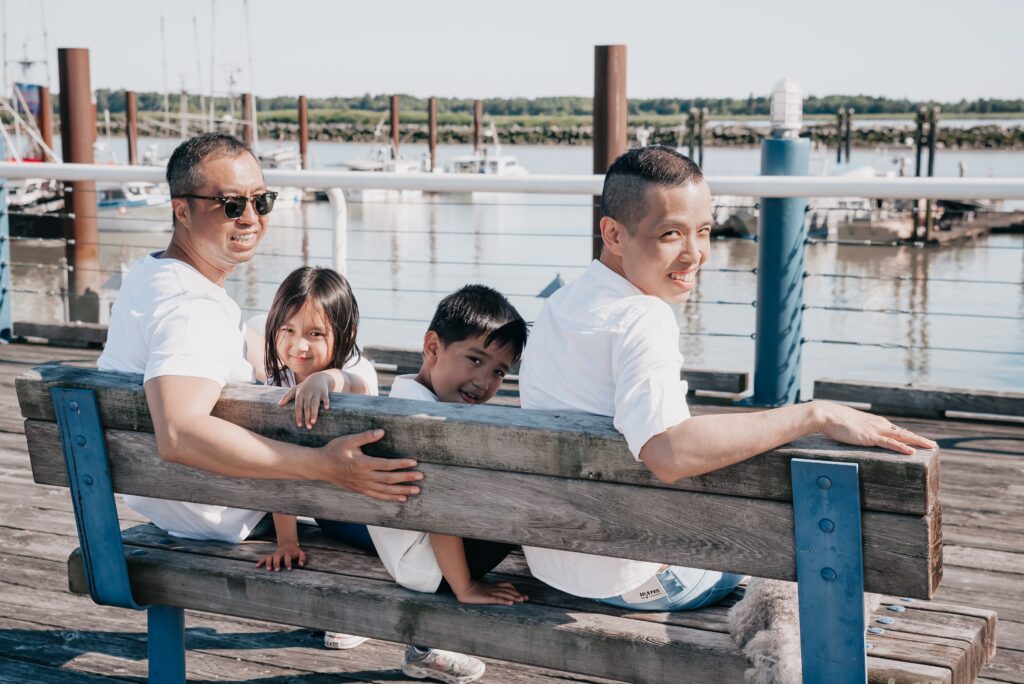
The Household Pulse Survey (HPS) examined the economic security and labor market experiences of LGBT communities since July 2021. That was when the U.S. Census Bureau took the historic step of adding questions on sexual orientation and gender identity to the HPS. What the data reveal is that “LGBT individuals are more likely or just as likely to be employed compared with non-LGBT individuals, they are also more likely to live in households earning below the poverty line and to struggle to make ends meet.”
In addition, those HPS data show “LGBT people have faced increased risk of experiencing economic insecurities, such as higher rates of poverty, unemployment, and public benefits use. Not only has the pandemic disproportionately affected LGBTQ people, but the recovery has also likely perpetuated existing inequities, leaving many LGBTQ workers stranded in low-quality jobs that offer poverty wages, few benefits, and limited protections.” Passage of the Equality Act would help mitigate that. Pressure on Biden and Congress to pass that legislation ceased when Biden was elected. That must become a focal point for 2023 and 2024. LGBTQ voters can’t be perceived as “safe” votes and allow candidates to be complacent about these compelling issues for the LGBTQ community.
This is particularly true when legislators in nearly two dozen states passed laws that restricted or outright ended civil rights and civil liberties for LGBTQ people in 2022. In a statement in June 2022, Cathryn Oakley, senior counsel and state legislative director for the Human Rights Campaign, said, “Our community has been under attack.”
Oakley said, “Radical political forces … are using the power that they are clinging onto to take decisions away from parents who want what’s best for their families. [It] is truly cowardly and unconscionable.”
The impact of these laws and the push for more has had a serious impact on the well-being of the LGBTQ community, triggering an uptick in harassment and violence. As Scientific American reported in December, “Anti-LGBTQ+ rhetoric fuels violence. Hate speech from the far right is increasing the risk of violence against LGBTQ+ people such as the Club Q shooting.” As of 2021, the last year for which there are statistics, about one out of every five hate crimes committed in the U.S. were motivated by anti-LGBTQ+ bias, according to the U.S. Department of Justice.
Added to these statistics is another year with a disproportionate number of murders of trans and nonbinary people.
Far-right protests targeting the LGBTQ community show a causal link with violent attacks, according to a new report released in mid-December by the Armed Conflict Location & Event Data Project (ACLED). In 2022, ACLED reports, 14% of demonstrations involving far-right groups have been anti-LGBT+, up from less than 3% last year.
In October, a new report was released by GLSEN (Gay, Lesbian & Straight Education Network). GLSEN describes itself as an education organization working to end discrimination, harassment and bullying based on sexual orientation, gender identity and gender expression and to prompt LGBT cultural inclusion and awareness in K-12 schools.

The GLSEN report—The 2021 National School Climate Survey—was disheartening. The report showed the overwhelming majority of LGBTQ students who attended school in person during the 2020-21 academic year experienced some form of harassment or assault. More than three-fourths of respondents said they were called names or threatened, while almost a third were shoved, punched, kicked or even assaulted with a weapon because of their sexual orientation or gender identity. LGBTQ students of color and those with disabilities reported the highest levels of in-school hostility.
Match that report with laws and policies promulgated by the GOP that restrict and/or erase the sexual and gender identities of LGBTQ youth and a crisis is brewing for 2023 that will only become more dynamic as the presidential race heats up.
What GOP lawmakers found during midterms was that starting at the local level, in school boards and other municipal governance, the GOP could make parental rights paramount and reframe LGBTQ civil liberties as a parental rights issue. That scenario is embedded in the 77-page Texas GOP platform which is now being used as a template for the national GOP. In that platform, the Texas GOP declared homosexuality “abnormal,” called for an end to same-sex marriage and over several pages outlined how parents needed to intervene in school curricula that teaches positivity about LGBTQ lives.
The Centers for Disease Control and Prevention (CDC), which failed GBT men during the recent Mpox outbreak, is also unclear about how to address anti-LGBTQ harassment and violence in the schools. The CDC released woefully outdated data in fall 2022 based on surveys of LGBTQ youth during the pandemic year. From that data, which pre-dates the new GOP focus on LGBTQ education in the schools, shows that support groups for LGBTQ students helps mitigate harassment and discrimination. Kathleen Ethier, the director of the CDC’s division of adolescent and school health, said “We do worry about changes to school efforts that might not just affect the well-being of LGBTQ kids who are at-risk, but also of all students.”
According to a tracker maintained by the Human Rights Campaign, only 22 states and the District of Columbia require districts to have explicit policies prohibiting bullying on the basis of sexual orientation or gender identity. But PEN America, a nonprofit organization that advocates for free expression, reveals that state lawmakers proposed 137 bills during the 2022 legislative session that would restrict classroom conversations and staff training about race, racism, gender identity, and sexual orientation in K-12 schools. This is a 250 percent increase since 2021.
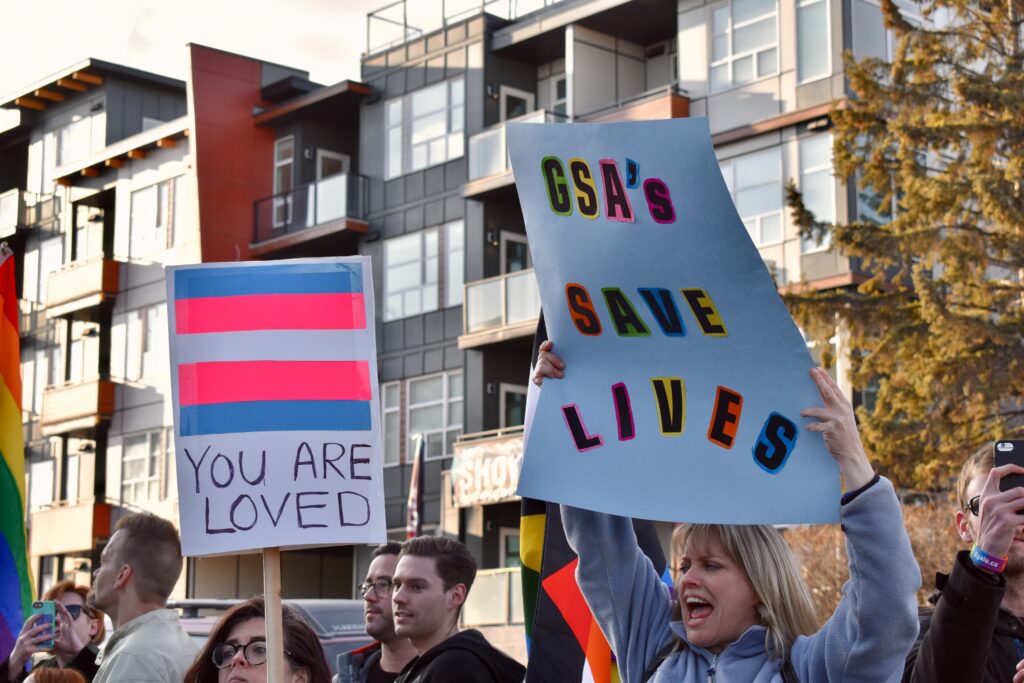
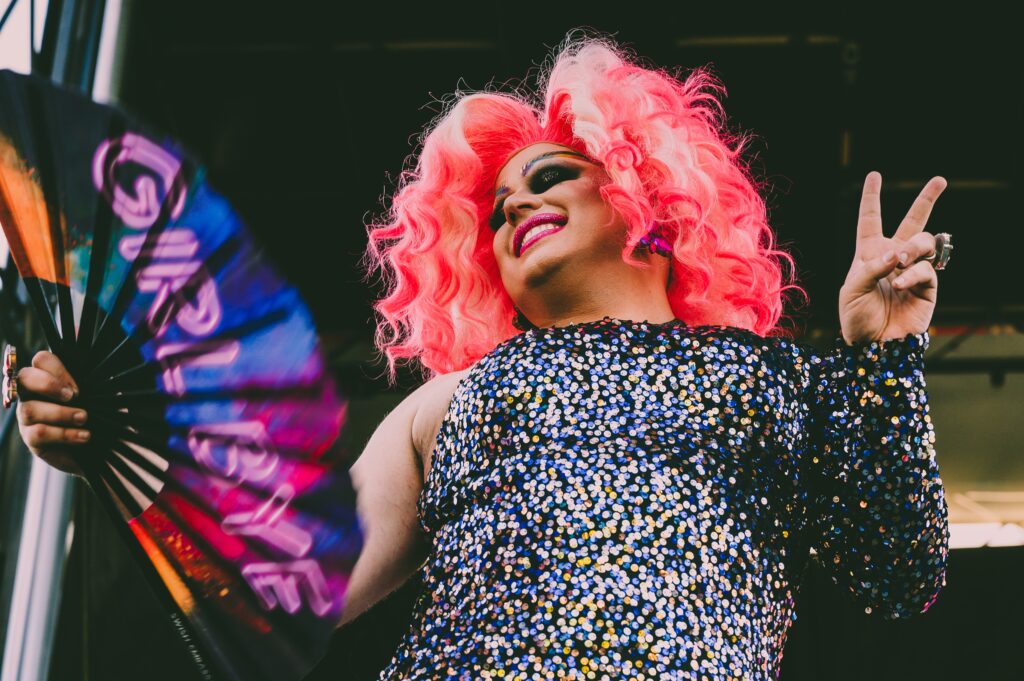
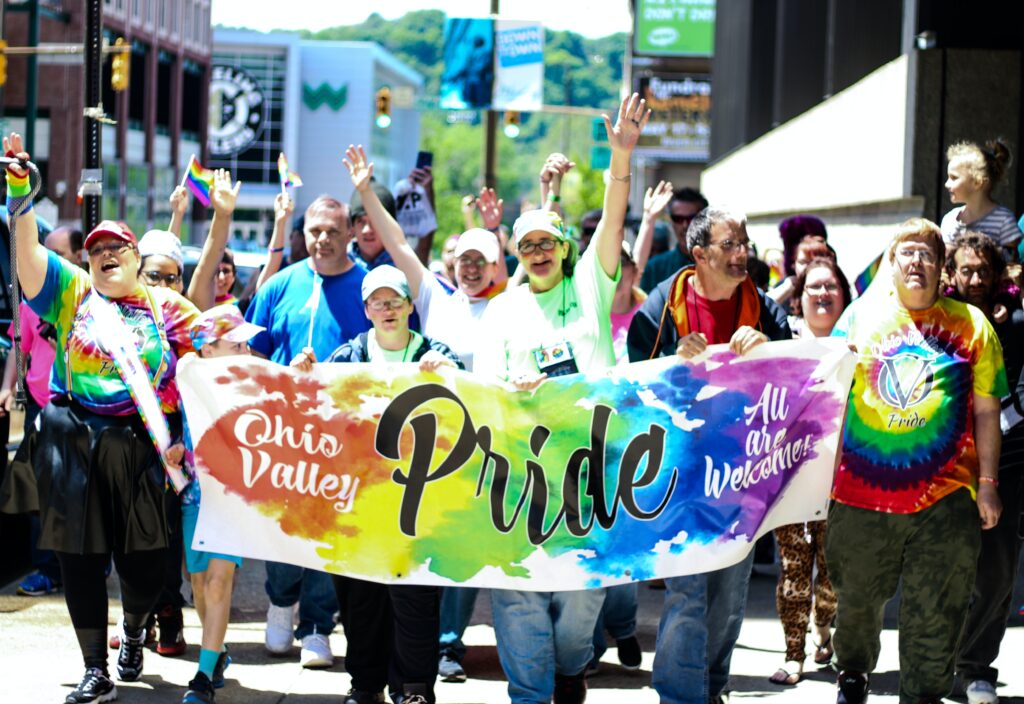
What needs to be done
So as 2023 begins, the data are clear: LGBTQ people have a battle against harassment, discrimination and violence. Fighting back requires activism at all levels: running for local, state and national office as well as volunteering with local and national groups that advocate for LGBTQ people, particularly those most at risk. Find a cause, volunteer, be the change.
The Trevor Project states, “As a volunteer you are on the front lines; working one on one with LGBTQ young people to help them navigate tough times and to prevent suicide.”
https://www.thetrevorproject.org/volunteer/
AARP lists a series of ways to “Be a voice, and a force, for the LGBT community.” https://createthegood.aarp.org/volunteer-ideas/support-lgbt-community.html
GLAAD offers ways to work with the organization.
https://www.glaad.org/getinvolved
SAGE USA (Services & Advocacy for LGBT Elders) is America’s oldest and largest non-profit organization dedicated to improving the lives of LGBT older adults, focusing on the issue of LGBT aging. They need volunteers.
https://www.sageusa.org/get-involved/take-action/
GLSEN offers ways to work with the organization
https://www.glsen.org/take-action
CDC LGBT Resources: https://engage.youth.gov/resources/lgbt-resources-learn-more-get-involved-and-be-proud-who-you-are
Volunteer Match will help you find local LGBTQ organizations doing activist work where you can add your energy and time.

